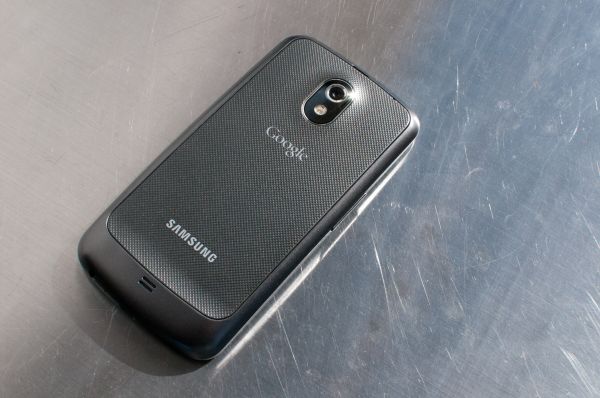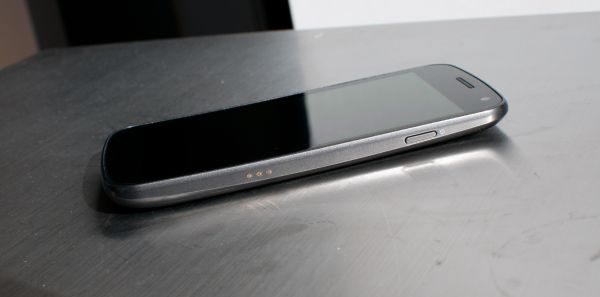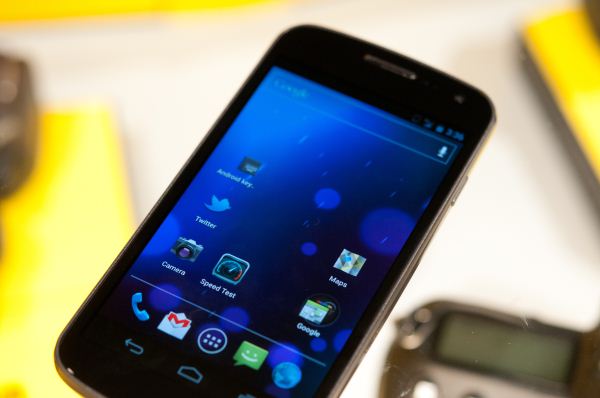Samsung Galaxy Nexus & Ice Cream Sandwich Review
by Brian Klug & Anand Lal Shimpi on January 18, 2012 1:34 PM ESTFor Google, one of the major points of Nexus has always been to provide a stable piece of reference hardware for it to cater a major OS release to. Each device has married a major revision of the Android platform to the latest stable hardware. That isn't to say that the hardware choices are always bleeding edge, but rather modern and logical next steps for the platform. I often read that Android as a platform is plagued by rapid hardware releases and product cycles that leave endless variants of the same hardware for each carrier, and that preloads and skins fragment the experience. While there's some truth to this, it isn't necessarily Google's fault - the software is open source after all. In the case of Android 4.0, this release is about consolidating the tablet and smartphone form factors under one version of Android and negating some talk of the platform's fragmentation.
For Google, each Nexus launch is analogous to Apple's iPhone launch - it's the one time that Google gets to dictate exactly what hardware is coming out, and exactly what software makes it onto that hardware. It is no less significant for Google's platform, either. Thus far there's been one Nexus device released per year, and that hardware gets updates from Google directly - at least until the hardware precludes support.
While the Verizon CDMA/LTE Galaxy Nexus is a bit unique, there's no indication thus far about how long carrier approval will take. The Galaxy Nexus line itself is very interesting - on one side, we have the GSM/UMTS device with pentaband WCDMA support that finally fully detaches the hardware from needing carrier specific versions for each region or carrier on GSM/UMTS networks. This is a dramatic step toward reducing carrier power, turning the networks into dumb pipes, and changing the way US customers shop for devices - exactly what the point was when Google launched the Nexus One. On the other, we have the Verizon CDMA/LTE version which thus far marks the furthest carrier incursion into otherwise untouched Nexus-land.
At this point, the Galaxy Nexus is awesome because of its marriage of Android 4.0 and a number of unique hardware features. I'd go so far to say that the Galaxy Nexus is without question the current best Android device, and with the improvements made in Android 4.0, first party applications and browser are now nearly as smooth as their counterparts in iOS. If OS smoothness was the thing holding you back from Android, 4.0 does a lot to change that. The Galaxy Nexus display is excellent, pentaband WCDMA on the GSM/UMTS model is exclusive only to that device, battery life isn't half bad, instant capture works well, and it has Samsung's newest LTE modem. The downsides are pretty much obvious - the camera is far from awesome, the GSM/UMTS variant has a quiet speakerphone, Samsung is using OMAP4460 at 80% of its maximum clocks, and some Galaxy Nexus displays have more more inhomogeneities than others. There's also the matter of newer 32 and 28nm SoCs that are just over the horizon.
The Galaxy Nexus is so important again because it's the only time Google gets to dictate everything - the hardware, the software, and update timing. There's also the element of freedom, with unlockable hardware out of the box. I find myself wishing that Google had begun its adventure sticking it to the carriers with pentaband WCDMA support like this phone finally has, as that would've been much more successful than the practice of releasing a few different Nexus variants with different bands.
As far as Ice Cream Sandwich is concerned, it really is Android perfected. Everything is smoother, faster and nearly all of our issues with the OS have been addressed. ICS brings Android into 2012 and gives Google a great platform to begin to introduce new features going forward. Android is now very close to UI performance parity with iOS, which eliminates a major tradeoff you had to make in the past. If you were hoping for ICS to be iOS with a Google logo on it, you'll be sorely disappointed. However if you're a fan of Android and just wished it were smoother and more polished, Ice Cream Sandwich is what you've been waiting for.













185 Comments
View All Comments
thecraw - Saturday, January 21, 2012 - link
couldn't stop laughing at that statement, sure no one is forcing you to use itunes, its your own problem if you want to backup your iproduct or upgrade your iOS etc.. yes no one is forcing you right...steven75 - Friday, February 10, 2012 - link
Have you never heard of iCloud? I mean are we in bizarro world here or is everyone really THAT clues on iOS 5?augustofretes - Monday, January 23, 2012 - link
I found comments like yours absolutely hilarious, because I don't own an iPhone, nor I'm interested on buying one, I'm perfectly happy with my Samsung Galaxy S II running CM9 ;-)You're not being objective, unless, of course, you only see your homescreen and never open any application.
The iPhone 4S is not perfect, I completely agree, but the interface is more fluid, this is fact, pinch-to-zoom is not a smooth, even on a GNex, as it on the 4S, but it's pretty smooth now.
Sorry mindless fanboy.
kebab77 - Sunday, February 5, 2012 - link
Serious performance boost for phones currently on Android 2.3.x:http://www.bestsmartphone.com/2012/02/05/android-4...
... Samsung Galaxy S2 still top of the pile!
macs - Wednesday, January 18, 2012 - link
My only suggestion is that there are some device that need a sort of priority for a review. Galaxy Nexus and ICS should be on this list like the Apple products (you already do that) and maybe a flagship WP 7 device like Lumia 800/900.We can wait a bit more for device like Razr, Lumia 710, various HTC, various Samsung,...
In 1 H 2012 my priority list will be Galaxy S 3, first device with Krait and Ipad 3.
Back at reading, I know this will be a good read!
Thank you
roedtogsvart - Wednesday, January 18, 2012 - link
Anand, just thought I'd throw this in there:For something like $25 (Verizon) you can buy an extended battery and gain an additional 250 mAh (1850 vs 2100) that adds basically no perceptible thickness to the device, though I did not precisely measure. Have you tested with the extended battery? I feel like it makes an already amazing phone even better.
Brian Klug - Thursday, January 19, 2012 - link
I managed to snag an extended battery for the RAZR review, but didn't get the chance to do the same with the CDMA/LTE Galaxy Nexus. I've seen that battery however, and it is a novel design - the back doesn't get thicker, just flatter (the whole phone is as thick as the bulge).We've seen pretty linear scalings before, so you can assume that extra 250 mAh will scale linearly as well.
-Brian
3DoubleD - Wednesday, January 18, 2012 - link
The task switcher is blazing fast on the Transformer Prime, so I'd say it's a Galaxy Nexus limitation and not an ICS limitation.Lucian Armasu - Thursday, January 19, 2012 - link
Anand didn't say it's an ICS issue either. He said it's a GPU issue, because older GPU's still can't handle HD resolutions very well, just like Tegra 2 GPU barely could, too.But I'm sure on lower-end ICS phones with lower resolutions, it should work faster, so it's not like every ICS phone will need a Tegra 3 GPU-level from now on.
GnillGnoll - Thursday, January 19, 2012 - link
He said it _could_ be a GPU issue. Something which I strongly doubt, it's not like the task switcher adds that much graphics load over rendering the normal UI.